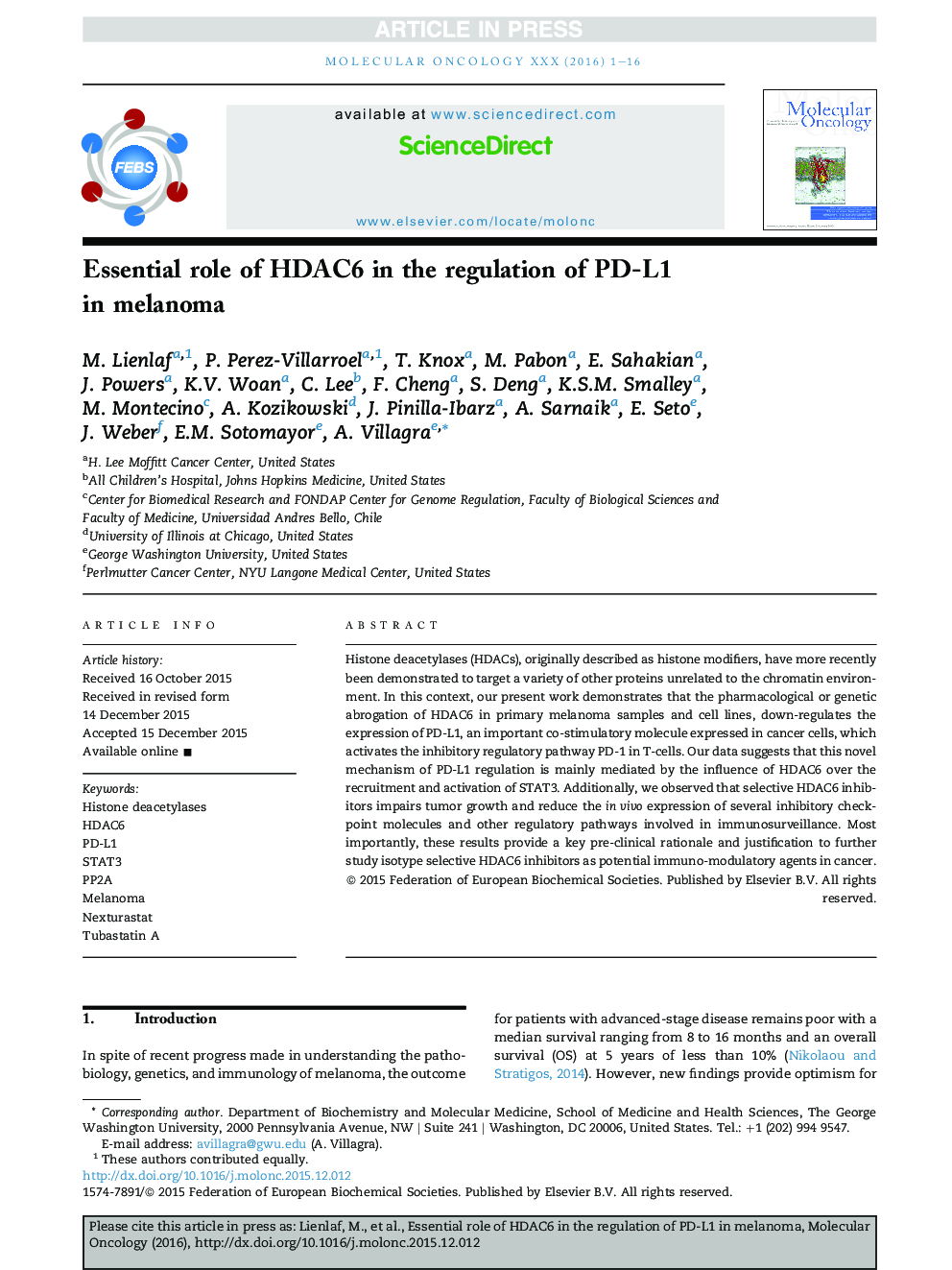| Article ID | Journal | Published Year | Pages | File Type |
|---|---|---|---|---|
| 10914512 | Molecular Oncology | 2016 | 16 Pages |
Abstract
Histone deacetylases (HDACs), originally described as histone modifiers, have more recently been demonstrated to target a variety of other proteins unrelated to the chromatin environment. In this context, our present work demonstrates that the pharmacological or genetic abrogation of HDAC6 in primary melanoma samples and cell lines, down-regulates the expression of PD-L1, an important co-stimulatory molecule expressed in cancer cells, which activates the inhibitory regulatory pathway PD-1 in T-cells. Our data suggests that this novel mechanism of PD-L1 regulation is mainly mediated by the influence of HDAC6 over the recruitment and activation of STAT3. Additionally, we observed that selective HDAC6 inhibitors impairs tumor growth and reduce the in vivo expression of several inhibitory check-point molecules and other regulatory pathways involved in immunosurveillance. Most importantly, these results provide a key pre-clinical rationale and justification to further study isotype selective HDAC6 inhibitors as potential immuno-modulatory agents in cancer.
Related Topics
Life Sciences
Biochemistry, Genetics and Molecular Biology
Cancer Research
Authors
M. Lienlaf, P. Perez-Villarroel, T. Knox, M. Pabon, E. Sahakian, J. Powers, K.V. Woan, C. Lee, F. Cheng, S. Deng, K.S.M. Smalley, M. Montecino, A. Kozikowski, J. Pinilla-Ibarz, A. Sarnaik, E. Seto, J. Weber, E.M. Sotomayor, A. Villagra,
